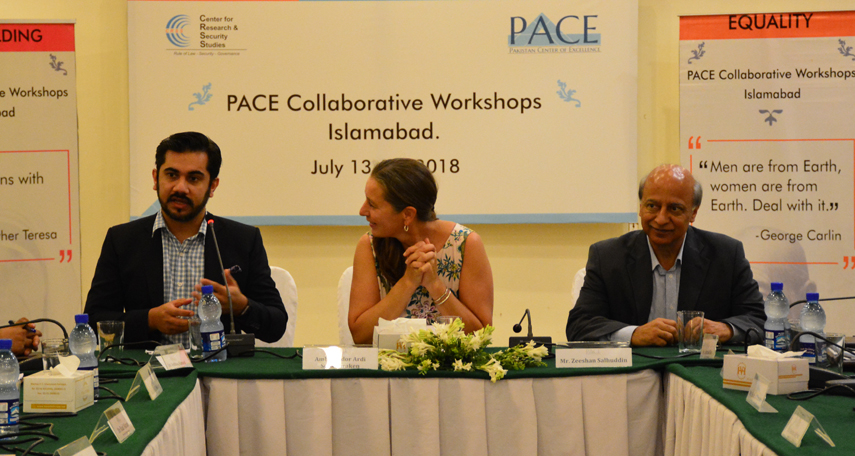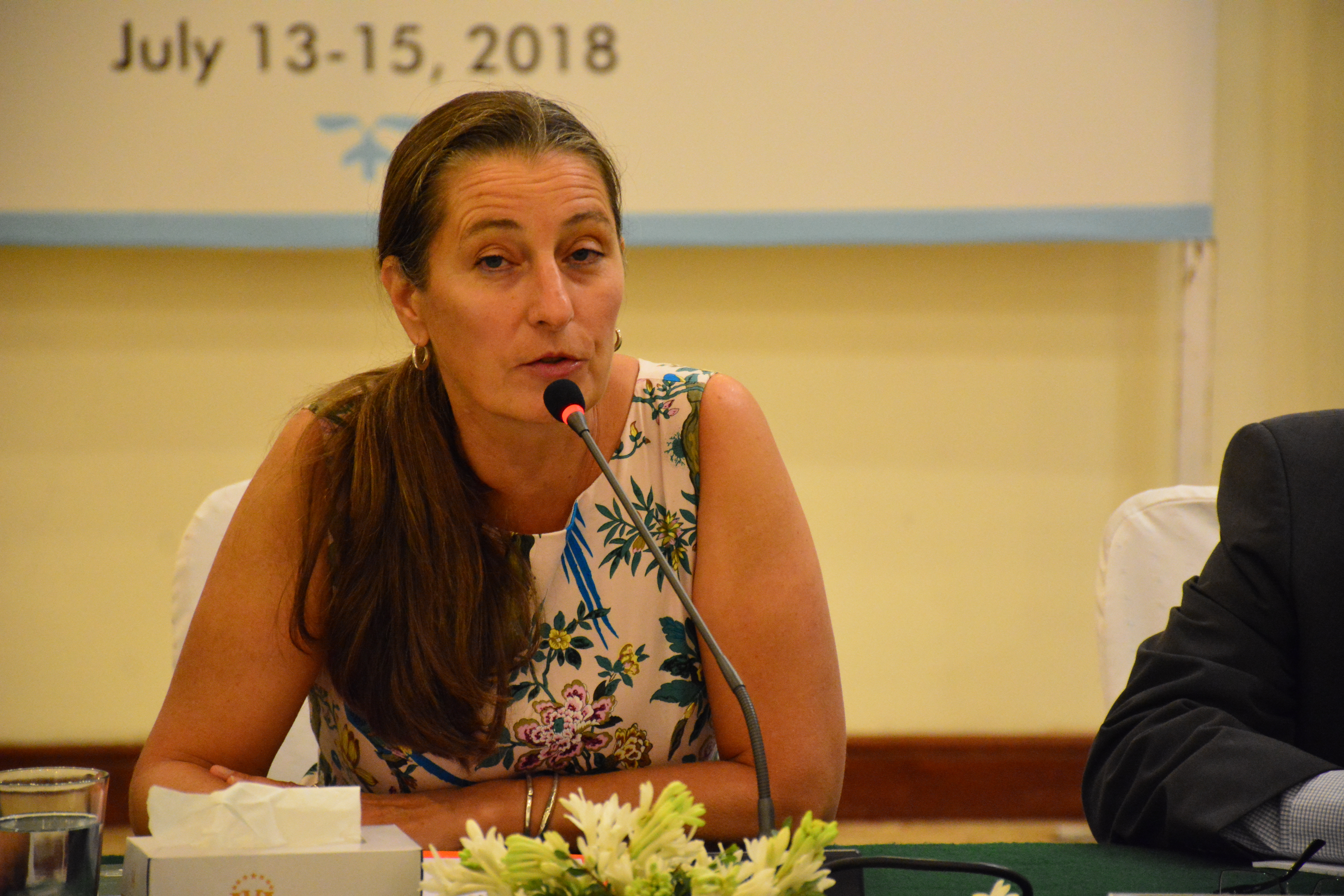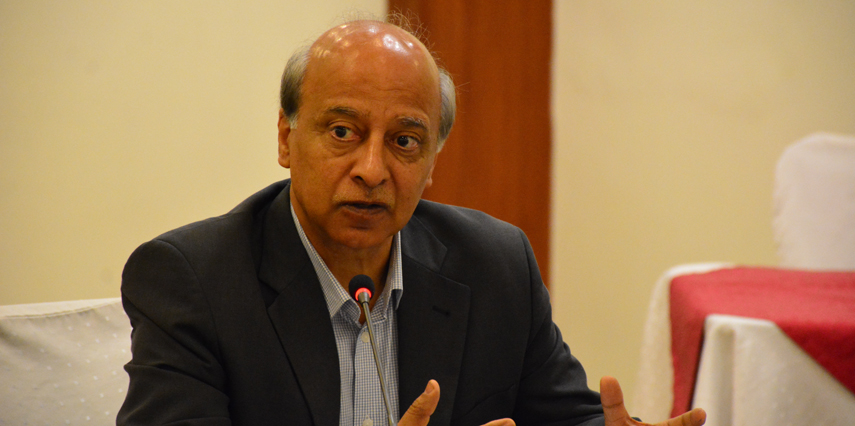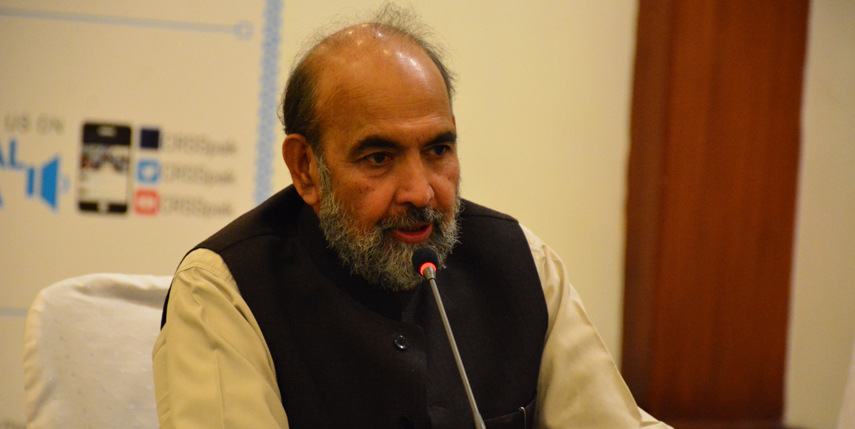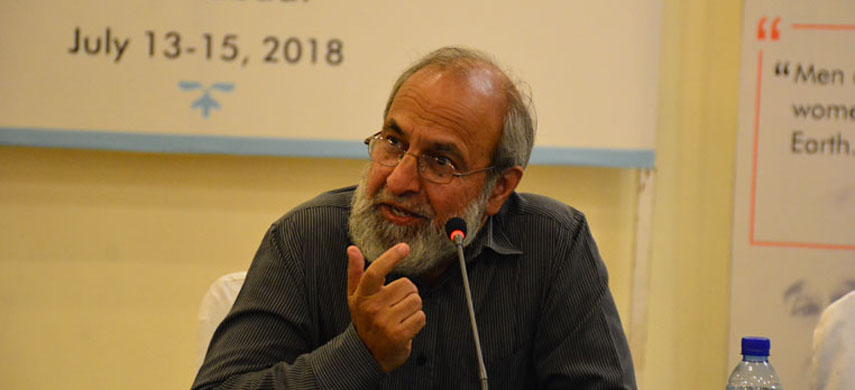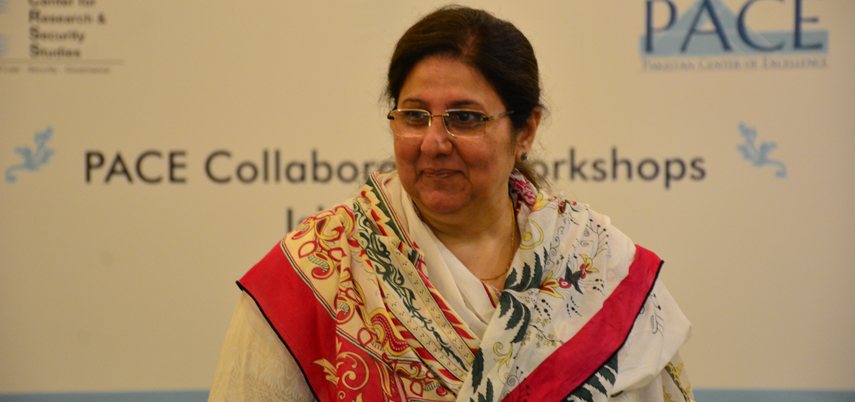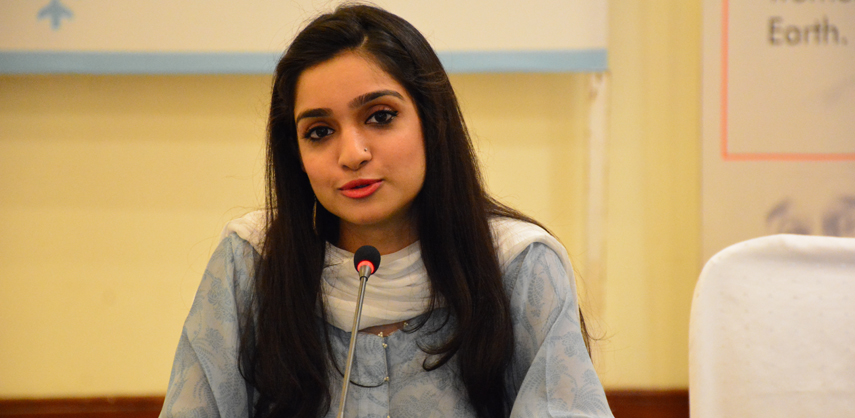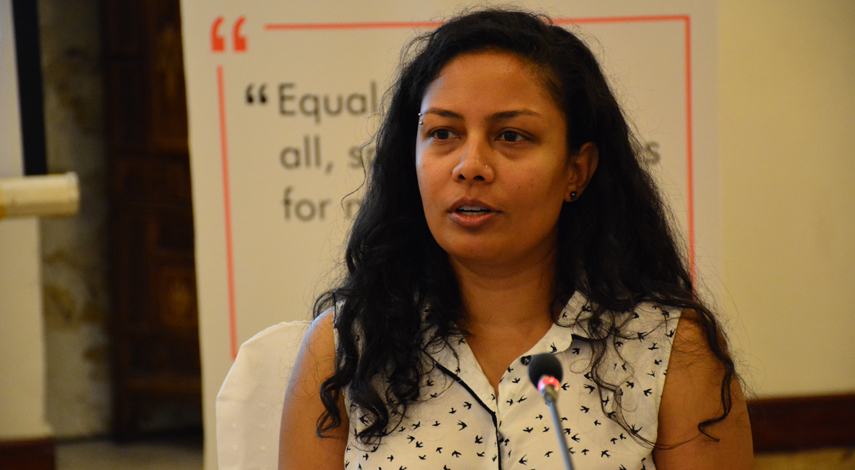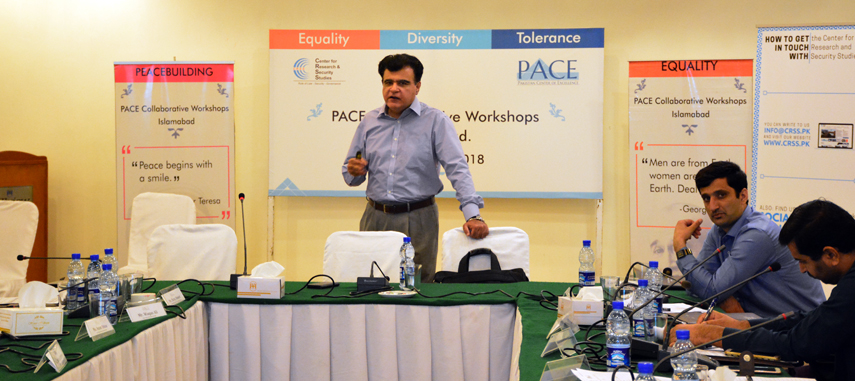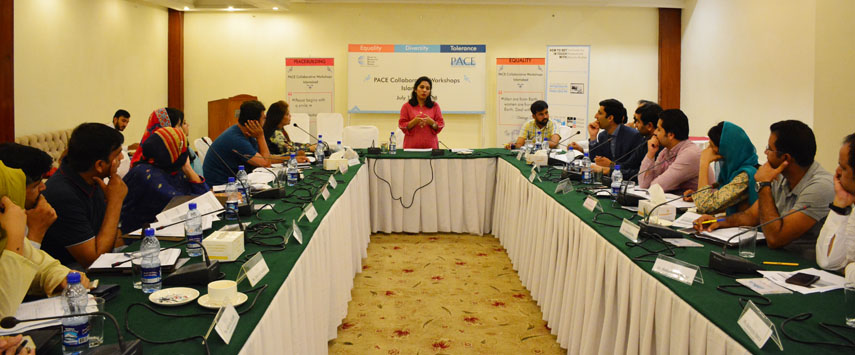The Center for Research and Security Studies (CRSS) conducted the 31st three-day PACE Collaborative workshop for young university lecturers and professors from July 13 – 15, 2018, at Hill View Hotel, Islamabad. The workshop was conducted under the umbrella of the Pakistan Center of Excellence (PACE), a counter-radicalization, pluralistic values focused project, in collaboration with the Dutch Government. Participants included young university lecturers and professors from all across Pakistan including Sindh, Balochistan, Punjab, KP and AJK.
OPENING
Mr. Zeeshan Salahuddin, Project Manager, welcoming the participants to the workshop said that the main purpose of inviting a diverse group from all across Pakistan is to gather a wide variety of spectrum from them. Teachers are the real gate keepers of the society because they are shaping future generations and are greatly influencing the lives of their students in multifarious ways. He said that PACE is an initiative by CRSS to counter radicalization, inculcate critical thinking, question preconceived notions and narratives, and embed a national discourse in constitutionalism and rule of law. He insisted on the role of teachers as gate keepers of the future generations equipped with the universal values of adherence to rule of law, respect for diversity, opinions and rights, and ideas of perseverance, coexistence, peace building and tolerance.
Her Excellency, Ambassador Ardi Stoiosbraken of the Kingdom of Netherlands was the chief guest of the opening ceremony. She shared her views saying that she is deligted to be here at the workshop t and interact with young teachers of Pakistan. I noticed that I am becoming more and more aware of how Pakistanis view its position in the world. It were the teachers of my primary and secondary schools who help me built the foundation for my critical thinking skills. My professors at university broadened andrefine them. What my teachers and professors did for me, you as university professor and teachers can do for your students in Pakistan: help shape their minds. I hope that you by taking part in this workshop will be empowered to meet this great responsibility effecrtively. You will broaden your horizon and become familiar with practical tools get assist in building a more toleran and inclusive Pakistan. I am really thankful to CRSS and PACE for inviting me to be here with you; the beautifulpeople of a beautiful and diverse country.
Mr. Imtiaz Gul, Executive Director CRSS, also shared his views with the participants of the workshop. Mr. Gul started off by thanking the Dutch Ambassador for providing CRSS with the opportunity to cascade the ideas of critical thinking anmd constitutionalism which basically constitute the core of a society. He shared that that PACE is put together by CRSS to counter radicalization, inculcate critical thinking, question preconceived notions and narratives, and embed the national discourse in constitutionalism and the rule of law. He elaborated the objectives of the training saying equal citizenry is a concept which is guaranteed in all the constitutions of the developed countries, including Pakistan. This workshop is designed to ponder on the issues we face in daily life but not on the basis of religiosity, we only have to deal with the twenty fundamentals rights entitled to the citizens of Pakistan in the constitution. Adherence to the constitution ensures social cohesion. He said that the primary objective of the workshop was to trigger critical thinking through a discourse anchored in fundamental global values such as socio-political diversity, acceptance of diversity, rule of law and equal citizenry. The idea is to create a critical mass of young leaders equipped with the skills to critically analyze issues, look at each other as equal citizens, and correct misperceptions about marginalized communities.
Dr. Qibla Ayaz
Dr. Qibla Ayaz started off his session on the topic “Respect for Diversity, Rights and Opinions”, saying that these characteristics are very important for the creation of a tolerant society. He also defined and cleared the meaning of the terms to the participants. Dr. Ayaz elaborated diversity is natural and a divine concept according to theology. Since diversity is divine and natural, it means that we are going against nature and the will of God. Also, the concept of rights and opinions are chained with this idea of diversity. If we are respecting these ideas and concepts only then the life can be spent smoothly. Only then, societies will be tolerant and open to the ideas of respecting diversity, rights and opinions.
Dr. Khalid Zaheer
Dr. Khalid Zaheer kicked off the second session of the day and spoke on the topic of religious intolerance. “Religious tolerance is the right one should give to others to believe in and practice faith of their choice. We can’t impose our views on others and we can’t blame others for their beliefs and ideas. You can’t respect a view despite of strongly disagreeing with it but you can show tolerance towards it. When we say, we allow others to have religious freedom and we can’t impose our point on other genuinely, that is called religious tolerance. We have no right to impose our beliefs on others. Our attitude toward other’s beliefs should be genuine and positive. People usually believe in and practice ideas and beliefs what they have learnt from their elders or what they have been convinced by. Islam teaches us not to use abusive language for other religions or faiths and respect them. If Islam says so; then why some Muslims are intolerant? There are a few arguments in front of them that are making them violent and intolerant. There is also a restrained religious setting who cut people off the society and there is always confinement in communication. Questioning is not allowed in such environments and they make you blindly follow the ones who lead such groups. We need to get rid of such environments, groups and thinking that are leading us to extremism and religiously intolerant society. We should not be violent towards the people who are not of the same belief as us. Everyone has right to do whatever they want and believe. Being humans, we expect others to tolerate us; same is what they expect from us.”
Ms. Naila Mir
Ms. Naila Mir kicked off her session on the topic of “Effective Student Handling”. She started her session on discussing the myths and realities regarding teaching methodologies in the context of Pakistan. She shared, “You don’t need any inborn talent to become great at something. Talent can be developed and for that you need the motivation and practice. Learning through a different method may reduce effort and time and make students understand the message. A teacher should give feedback and help students identify own areas and adopt for a positive approach to overcome the weaknesses. You can help them speed up their learning tenfold by helping them identify and use the right methods.”
Ms. Maham Asif
Ms. Maham Asif’s session was detailed on the topic of “Water scarcity in Pakistan – A bigger threat than terrorism”. She discussed Pakistan’s situation saying that a UNDP report says that Pakistani authorities are negligent about an impending water crisis that is posing a serious threat to the country’s stability. According to the Experts say the country is likely to dry up by 2025. She thoroughly discussed the water sources of Pakistan and elaborated that how these sources are drying up. Ms. Asif said that Pakistan is the 7th most vulnerable country to climate change and the examples can quoted as flash floods of 2010, droughts and depletion of glaciers. Glacier depletion, especially recent melting can affect agriculture, drinking water supplies, hydro-electric power, and ecological habitats. This can also have a more immediate impact on Pakistan’s economy that depends mainly on water from glacier melt.
Glaciers are melting at a rapid speed due to the rising temperatures across the country and the Indus River System Authority (IRSA) has increased the provincial shares of water and river inflows rose to 240,000 cusecs from 108,000 cusecs. According to IRSA, the temperature in Skardu has touched 32 degree Celsius which is a record temperature in the first week of June.
Also, she shared that in Pakistan each person uses about 711 liter per day. Domestic and Industrial waste are discharged directly or indirectly in fresh water. There are only 3 waste water treatment plants in Pakistan. Only 8% of urban wastewater is treated in municipal treatment plants. In Sindh 95% of shallow groundwater supplies are
bacteriologically contaminated. In Punjab, approximately 36% of the population is exposed arsenic and
approximately 40% of dieses are water borne.
We can counter the issue of water scarcity if we start behaving like responsible citizens and consider the following points:
- Save water while brushing your teeth
- Refill your bottles
- Buy Recycled-Paper Products
- Install a Low-Flow Showerhead
- Water Your Lawn in the Early Morning or Evening
Ms. Radha Shah
Ms. Radha Shah started her session on “Addressing and Recognizing Sexism in Global and Pakistani Context.” She shared her experience saying that the session would specifically focus on the issue of sexism at the workplace when women are harassed sexually as well as don’t have equal access to speak or participate. Sexism even when you are not being heard on the basis of your gender and how can it affect your possibility for contribution and function in a professional capacity. It also means that if women are facing particular barriers at the workplace they are also excluded from the broader ideas of diversity. A lot of organizations in Pakistan and around the world make talks in terms of inclusivity and diversity. But what actually happens is that women are in a constant marathon to keep up with their male colleagues.
We need to look into the practical solutions for women where experience is more bearable and also productive. At the same time what are the things that men can do to actively create more equality for women at workplace if they are very much into this idea of diversity and equality.
She said, “My experience is from Canada and now in Pakistan, where I faced sexism that was also combined with racism. A colored person’s experience is way different from a white person facing sexism. One major difference that I noticed prior to coming to Pakistan that I never talked about sexism and feminism as much as I had here and it wasn’t expected. I found from my conversations with my social circle and professionals that women have to fight through every day and women are also tired of experiencing discrimination at work place. We need to encourage discussion on gender equality and more on women inclusion in mainstream.”
A woman, in Pakistan, is supposed be careful while making decisions for herself. Women can’t wear dresses of their choice, their participation and contribution at work place is not as appreciated as those of men, they are thought of lacking inter-personal skills, their capability and credibility is being misjudged on the basis of their gender. A women’s experience has very much to do with their gender.
Laws like Anti-Harassment Act, 2010 was passed and such laws are starting a point for change. Despite the fact, we have a law, still there are lots of gaps and women face harassment. At the organizational level, HR and admin departments should make sexual harassment laws and protect women from assault or other discriminatory or abusive behaviors. People need to be educated about equal rights for all and also need to bring such issues in the notice of policy makers to get away with these crucial issues.
Dr. Niaz Murtaza
Dr. Niaz Murtaza shared his views on the concept of democracy and good governance. He said that any institution at its initial stage is never stable, and the same is the case with democracy. But once it is stable and mature, democracy starts delivering. “When we look back at the history of Pakistani politics, Pakistan has never been stable,” he added, “It could never see the fruits of stable and mature democracy. Political scientists state that from stable institutions emerge egalitarian societies. Egalitarian societies are the ones where people have equal access to education, capital, opportunities and freedoms. In such societies, strong institutions, able leadership and good governance emerge and development takes place.”
CLOSING
Ms. Farhana Kanwal, Project Coordinator, PACE, in her concluding remarks, insisted that there is a dire need to revisit the widespread pre-conceived notions that have been passed through cultural values in the society over generations. Teachers, with the responsibility of imparting values to the young generation in educational institutions, are the most valuable engines that can challenge common negative narratives that promote hatred and bigotry. She said that teachers have the ability to shape an entire generation’s mindset to propagate tolerance, diversity and equality.
Moreover, she shared that participants need to conduct these activities with their students to inculcate adherence to the rule of law and equal citizenry. CRSS provides financial and logistic support in this regard to lecturers and professors so that they can foster the universal ideals of tolerance and diversity in the young generations.

